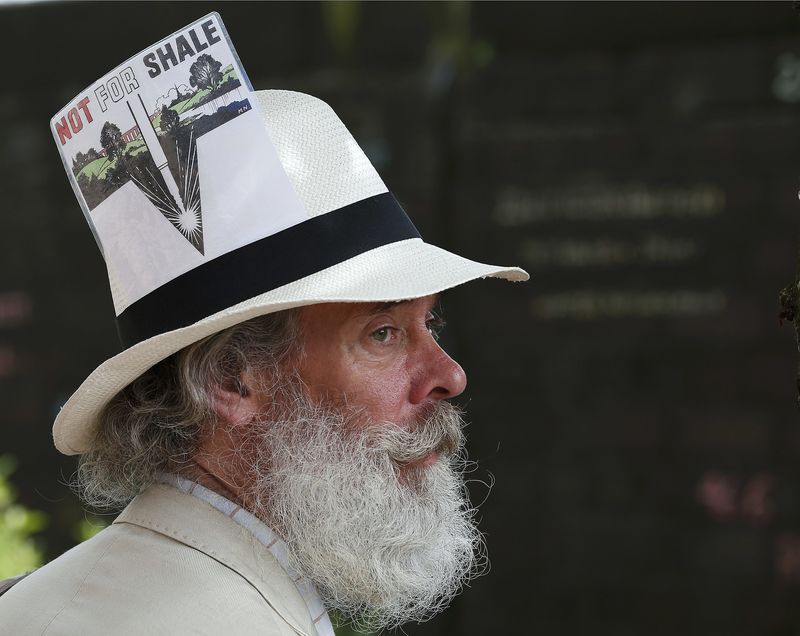By Kylie MacLellan
LONDON (Reuters) - Some tax proceeds from shale gas developments in Britain could be given directly to residents, Prime Minister Theresa May said on Sunday, in a bid to help clear the path for an industry hampered for years by local opposition to fracking.
Britain is estimated to have substantial amounts of shale gas trapped in underground rocks yet fracking applications have struggled to find approval from local communities, concerned about noise and environmental impacts.
Last year, then Chancellor of the Exchequer George Osborne said the government would create a shale wealth fund that would receive up to 10 percent of tax revenue from shale gas developments for investments in communities affected by the projects.
May, who took over as prime minister last month after Britain's June 23 vote to leave the European Union, said she wanted to look at the option of this money being paid directly to residents rather than to local authorities.
"The government I lead will be always be driven by the interests of the many, ordinary families for whom life is harder than many people in politics realise," May said in a statement on Sunday, ahead of the launch of a consultation on the fund.
"This announcement is an example of putting those principles into action. It's about making sure people personally benefit from economic decisions that are taken, not just councils, and putting them back in control over their lives."
The government said the new fund could deliver up to 10 million pounds per eligible community. It did not say how much each household could receive, but local media reported it could be as much as 13,000 pounds in some areas.
Only one shale gas well near Blackpool, in Lancashire, has so far been fracked in Britain but was later abandoned when some of the work undertaken triggered an earth tremor. That resulted in an 18-month ban on the hydraulic fracturing - or "fracking" - technology used to extract gas from shale rock.
In May, Third Energy received the first planning approval for a shale gas fracking well since 2011. It says it will start hydraulic fracturing at its Kirby Misperton site in North Yorkshire in northeast England before the end of the year.
Last year, competitor Cuadrilla Resources had two permits rejected by officials in Lancashire. Cuadrilla has appealed against the decision and the government has since changed the rules to have the ultimate say in shale gas related application.
The British pound's weakness since the Brexit vote has made it more expensive to import gas, helping the case for shale gas which had been hurt in the past by weak oil prices and by opposition to planning approval from local campaigners.

May, who last month delayed a decision to approve the building of Britain's first nuclear power plant in decades, has stressed the importance of secure energy supplies, which shale advocates say is one of their industry's strengths.